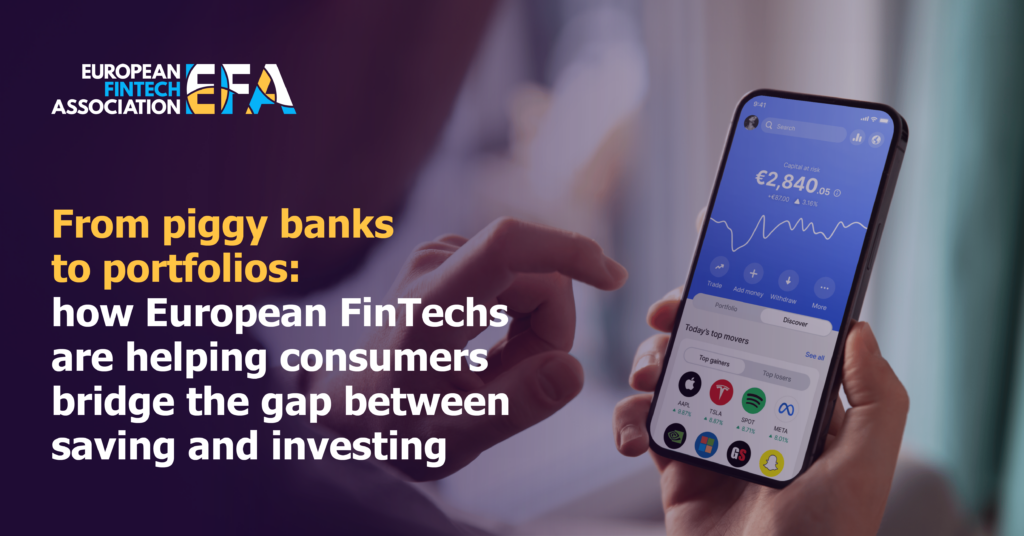
In the evolving landscape of personal finance, European fintechs are at the forefront of transforming how individuals grow their savings. By leveraging innovative technologies and user-centric platforms, these companies are simplifying saving, and at the same time, making investing accessible and cost-effective, enabling even novice investors with limited funds to participate in the financial markets.
With their digital-by-design offerings, fintechs are helping customers reach their financial goals with easy technology solutions – allowing them to budget, set goals and automate the process of setting money aside each month. But more than that, fintechs like Revolut have also helped democratise the world of investing by offering lower fees compared to incumbents – thanks to technological innovation, strategic partnerships, economies of scale, a customer-first philosophy, and a commitment to transparency and efficiency. Fintechs can process trades more efficiently and pass those savings on to customers in the form of lower fees, but also offer possibilities to start investing with a modest financial commitment, further reducing barriers to entry for EU consumers to begin their journey to grow their wealth.
With features like fractional investing, automated savings plans, robo-advisors, and Money Market Funds, these platforms aren’t only facilitating the growth of personal wealth, but are also promoting a more financially informed and engaged public.
- Fractional securities and ETFs
One of the key innovations driven by fintechs is the introduction of fractional securities — mostly stocks and ETFs. For instance, instead of buying a whole share of a company with a high per-share price, investors can buy a fraction of a share for the amount they can afford at the moment.
- Recurring buys
European fintechs are popularising the concept of recurring buys or dollar cost averaging (DCA), known as “Savings Plans” in Western Europe. This investment strategy involves regularly buying a fixed euro amount of a particular investment, regardless of the share price, which reduces the impact of volatility on the overall purchase.
- Robo-advisor services
For individuals who lack the time or expertise to manage their investments, many European fintechs offer robo-advisor services. These automated platforms use algorithms to create and manage a diversified portfolio based on the user’s financial situation and goals.
One of the biggest hurdles in fostering a culture of investment is the glaring lack of financial education from a young age. Fintech companies are also stepping up to bridge this critical gap, empowering individuals with the knowledge and tools they need to make informed financial decisions, as well as learn about how to begin their journey as first-time investors. As more individuals gain financial literacy, they’re better equipped to navigate the investment landscape, fostering a more inclusive and financially savvy society.
Importance of retail investment in Europe
According to the European Central Bank, at the end of 2022, nearly 50% of financial investments were held in cash and bank deposits. In contrast, only 24% of financial investments were invested in debt securities, investment funds, and shares. This preference for deposits over investments limits the potential growth of individual wealth, especially as interest rates continue to decline.
Beyond helping the everyday consumer build future wealth, retail investment also plays a crucial role in Europe’s economic stability and growth. By channelling personal savings into capital markets, retail investors not only enhance their own financial wellbeing. They also contribute to broader economic development by providing capital for businesses and governments. Retail investors bring increased liquidity to markets, resulting in higher trading volumes and narrower bid-ask spreads. Their participation also enhances market efficiency by contributing to more accurate price discovery and greater market depth.
As the sector continues to evolve, the impact of fintech innovations will likely expand, further integrating safe and effective investment practices into everyday financial management for individuals across Europe, thus strengthening the financial wellbeing of consumers and the EU economy alike.
